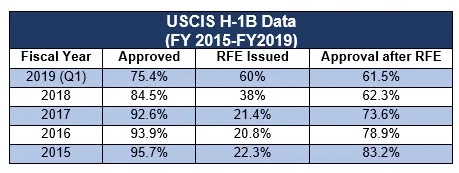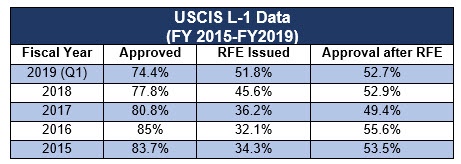Congress raised concerns about the rising delays and unjustified denials of various visa types at the U.S. Citizenship and Immigration Service (USCIS), during a House Judiciary Committee oversight hearing on July 16, 2019. Representative Zoe Lofgren (D-CA), chair of the House Judiciary Committee’s Subcommittee on Immigration and Citizenship, specifically highlighted inefficiencies regarding changes in processing, noting their impact on students experiencing significant delays for Optical Practical Training (OPT). Marketa Lindt, president of the American Immigration Lawyers Association (AILA), testified about the surges in USCIS’s average processing times of H-1B visas. Notably, Lindt revealed data that shows H-1B denial rates have increased even though laws and regulations remain unchanged.
At the hearing, USCIS Associate Director for Service Center Operations Donald Neufeld explained that when a change is introduced to his agency, it must “educate the public on what the requirements are as we now understand them,” in addition to training its officers. This, he claimed, causes an increase in Requests for Evidence, and “perhaps an increase in denials.” Neufeld went further to state that “a number of changes have been made affecting H-1B processing over the last couple of years,” contradicting other USCIS officials’ denials that processing delays were associated with changes in administration policy. While laws and regulations have not changed, there have been policy memos “instructing adjudicators how to interpret existing law and regulations,” possibly affecting the H-1B adjudication process, according to Forbes contributor, Stuart Anderson.
Further evidence indicates that USCIS policies caused processing changes and inefficiencies. For example, denial rates for H-1B petitions have increased dramatically—from 6% in Fiscal Year (FY) 2015 to 32% percent in the first quarter of FY 2019, according to a National Foundation for American Policy (NFAP) analysis. Marketa Lindt also explained that AILA’s analysis of USCIS data also revealed that the agency’s average case processing time for H-1B petitions surged by 91% from FY 2014 to FY 2018. Regarding the O-1 visa, Maria Mejia-Opaciuch reported in an article for Mondaq published last November that “the administration has made incremental changes to the review and standards used in the O-1 context, doing so through policy memorandum” and have subsequently caused delayed processing times. Additionally, increased scrutiny by US Customs and Border Protection (CBP) agents at airports and border crossings has made it harder for O-1 visa holders to enter the United States.
Lindt concluded that USCIS’s policies had driven delays, including requiring in-person interviews for employment-based green card applicants and no longer “deferring to prior decisions when adjudicating an extension application for a current visa holder and significantly increasing the number of Requests for Evidence.” The matter, while finally addressed by Congress, remains largely unsolved. Indeed, during a court hearing this past May, US District Judge Rosemary M. Collyer asked Aaron S. Goldsmith, a government attorney, about a USCIS memo that reportedly contributed to the increase in H-1B denials, questioning why the results were so different if the agency was not in fact changing things. To this, the government replied: “That’s a fair question.”
Source: Fragomen via USCIS FY15-FY19
Source: USCIS, National Foundation for American Policy. FY 2019 data are for the first quarter. Data extracted and analyzed from USCIS H-1B Employer Data Hub.



